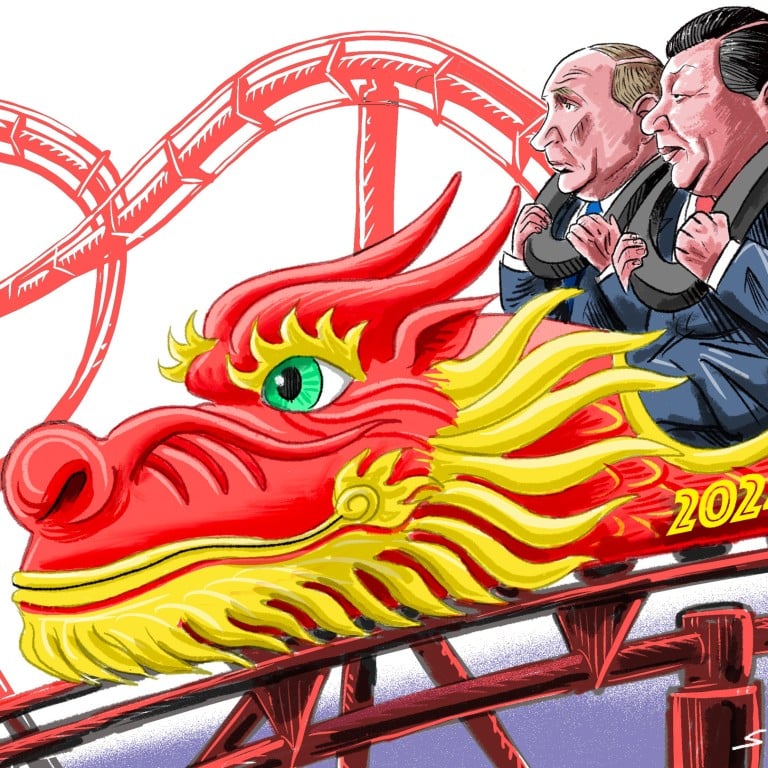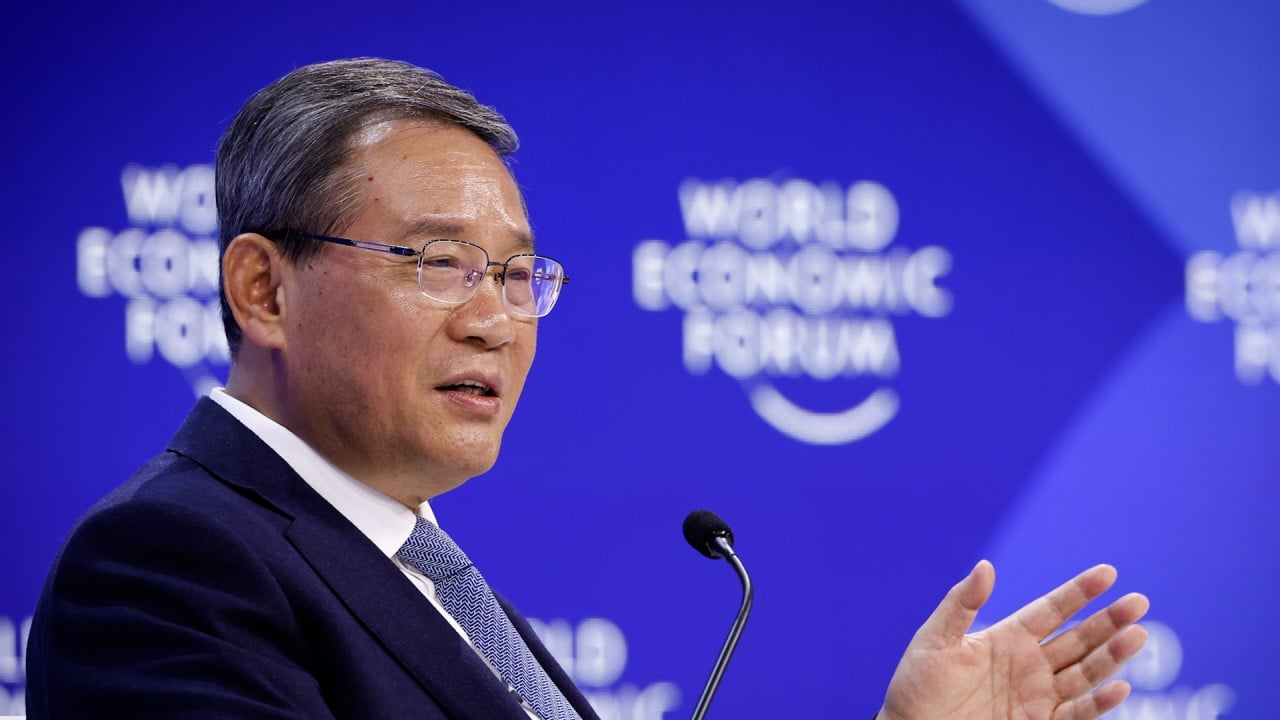
What lies in wait for Xi and Putin in the Year of the Dragon?
- Both leaders will be emboldened by a divided and distracted West but they will also have to wrestle with economic vulnerabilities
- Xi will watch closely Russia’s progress in Ukraine and its overtures to North Korea, while Putin will be nervous about losing any Chinese support
Russian President Vladimir Putin and Chinese President Xi Jinping will enter the Year of the Dragon emboldened but weakened.
Emboldened by the resilience of their countries in the face of growing Western pressure, and the tacit support of the geopolitical “swing states” of the Global South. And quietly confident that the Western resolve to confront, contain and compete with Moscow and Beijing is being diluted by elections, and political and societal divisions.
But behind the bravado, Xi and Putin will greet the New Lunar Year weakened by the vulnerabilities in their economies, which have lost, or are losing, access to Western markets, technologies and investment. China’s glow as the world’s most dynamic economy and Russia’s credentials as an energy superpower are fading.
But a change of leadership in Washington and London may not be enough to turn the West away. Ukraine will not surrender. A stalemate is the best scenario for Putin this year.
Putin will also watch Russia’s economy for signs of overheating and breakdown. The International Monetary Fund expects 1.1 per cent growth this year. But this will be fuelled by the war – over 29 per cent of this year’s budget will be spent on defence.
Inflation pressure is persistent and ever-tightening sanctions are depleting the economy of critical technologies. The energy sector remains robust. But if oil prices hover around US$50-US$60 a barrel, it won’t sustain Russia’s war and social spending.
Putin will also keep an eye on tensions in Russia’s impoverished periphery, such as the recent nationalist protests in Bashkortostan. Overreaction will upset a delicate balance of inter-ethnic relations. A weak response will embolden other regions unhappy with Moscow’s heavy-handed rule.
This is an auspicious year for Xi. It’s been 12 years – a full cycle of the Chinese zodiac – since he replaced Hu Jintao as general secretary of China’s Communist Party.
We don’t know if the Chinese and Russian leaders believe in horoscopes. But we know they care about their legacies. Both are in their 70s and in charge of the world’s major powers, each year at the helm is worth hundreds of pages in history books. How will Putin and Xi respond to the ups and downs of a volatile and dangerous world? Against domestic problems and hostile global competitors, can they both get through the Year of the Dragon unscathed?
Philipp Ivanov is senior fellow at the Asia Society Policy Institute’s Center for China Analysis and the founder of the China-Russia Programme at the Asia Society

.jpg?itok=oxpH7B-e&v=1706840013)

